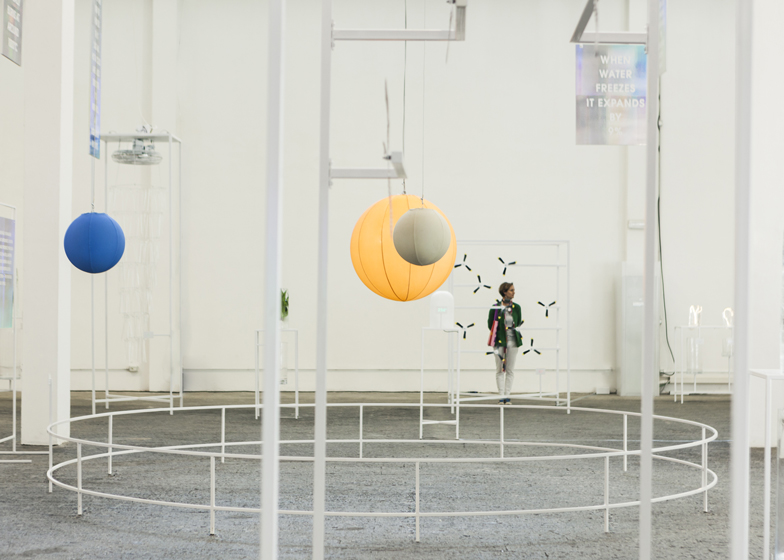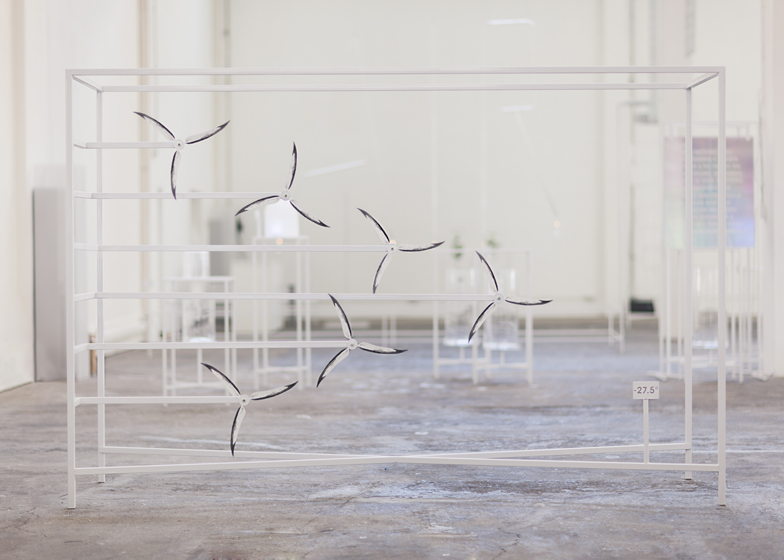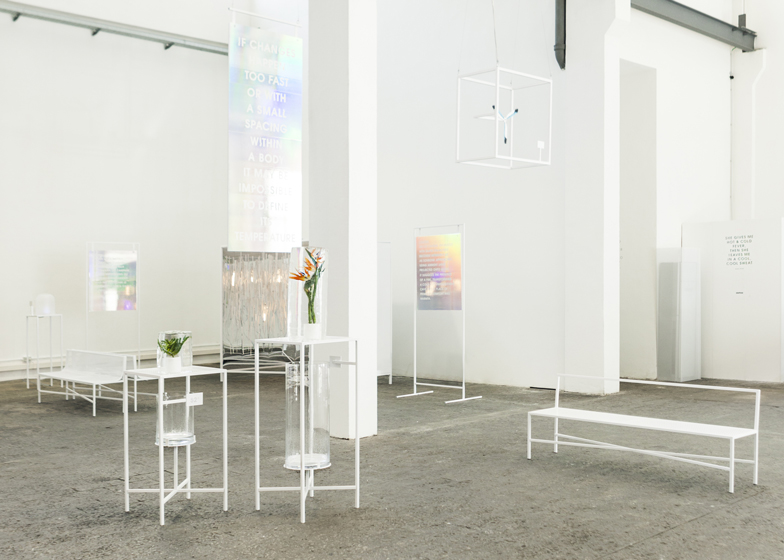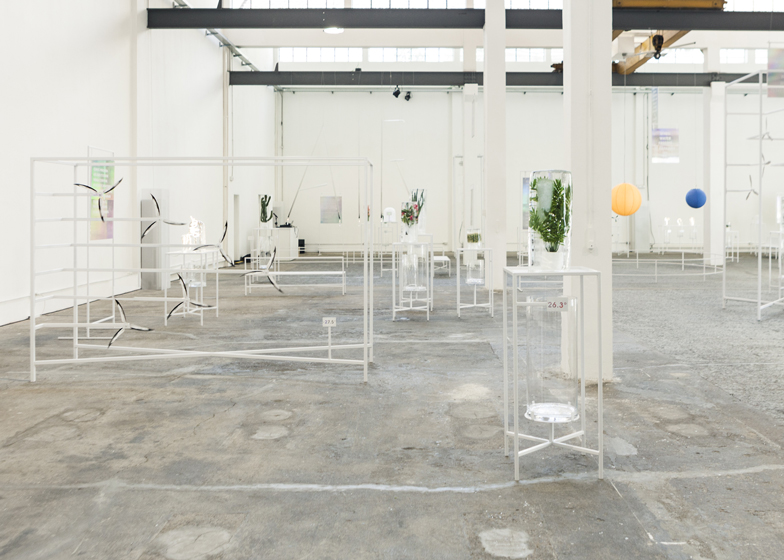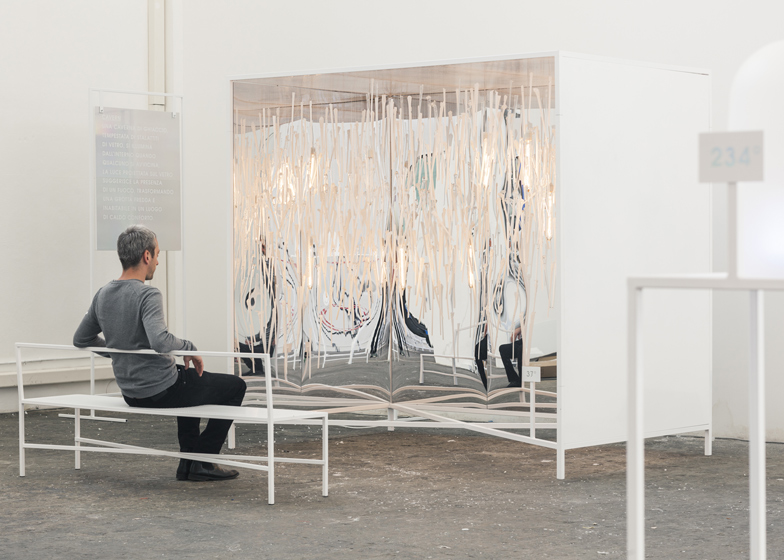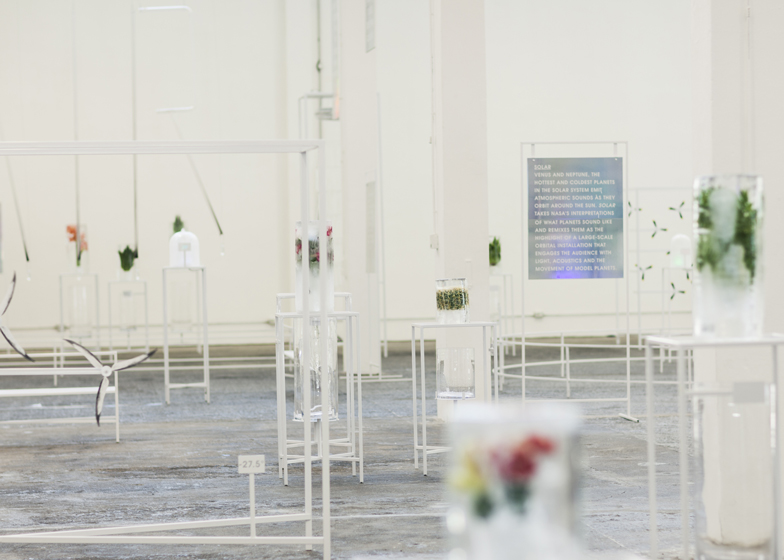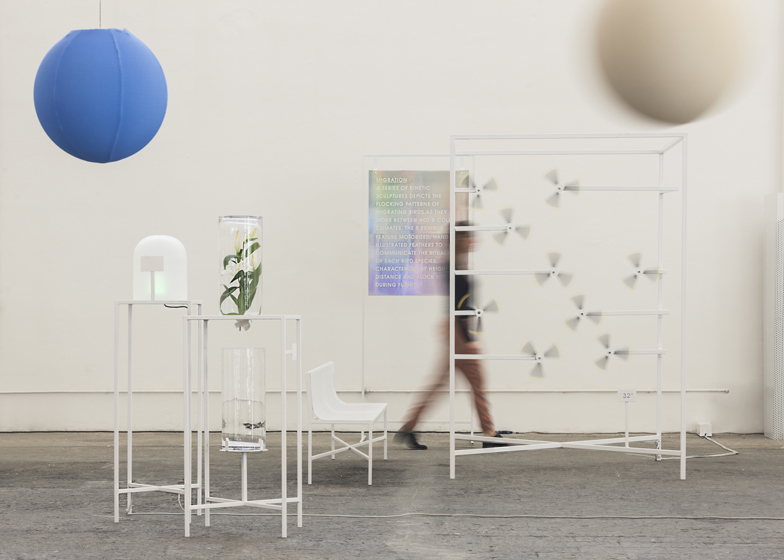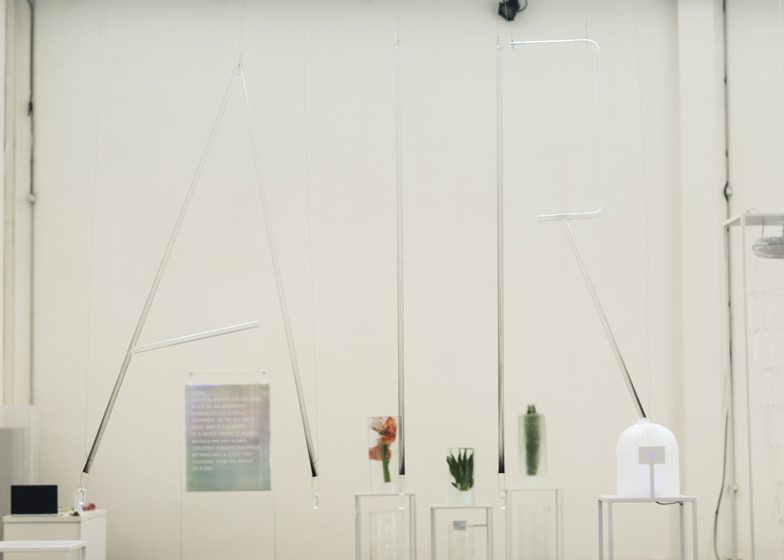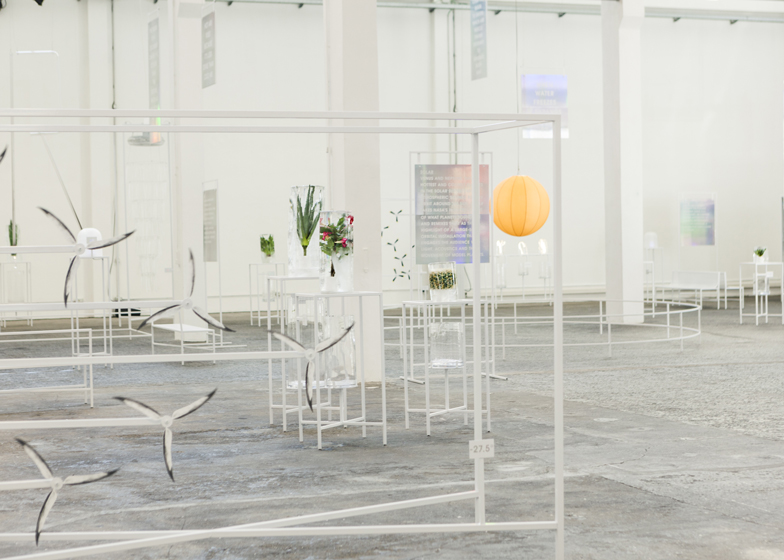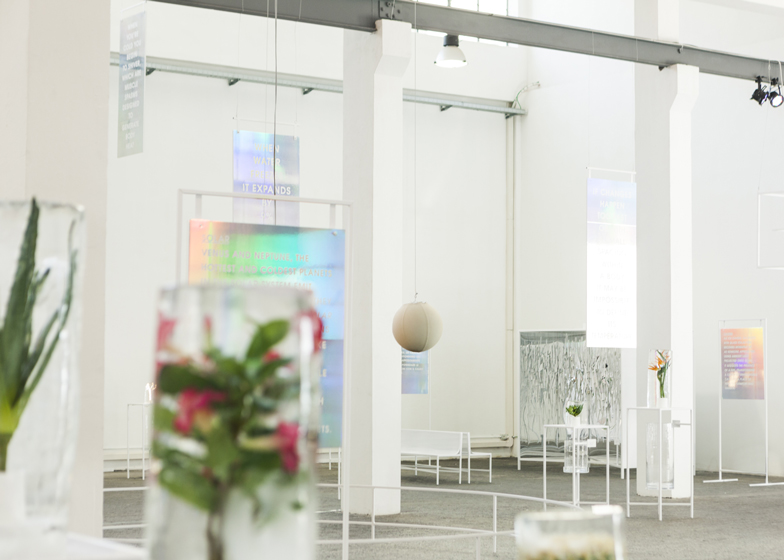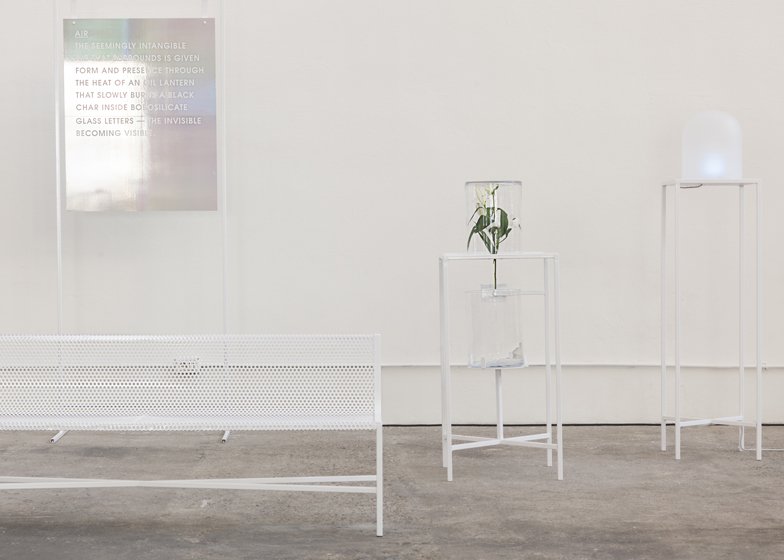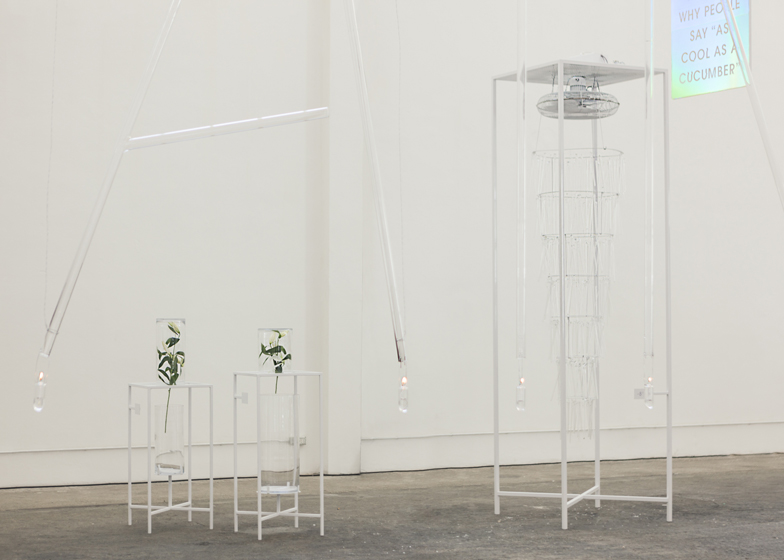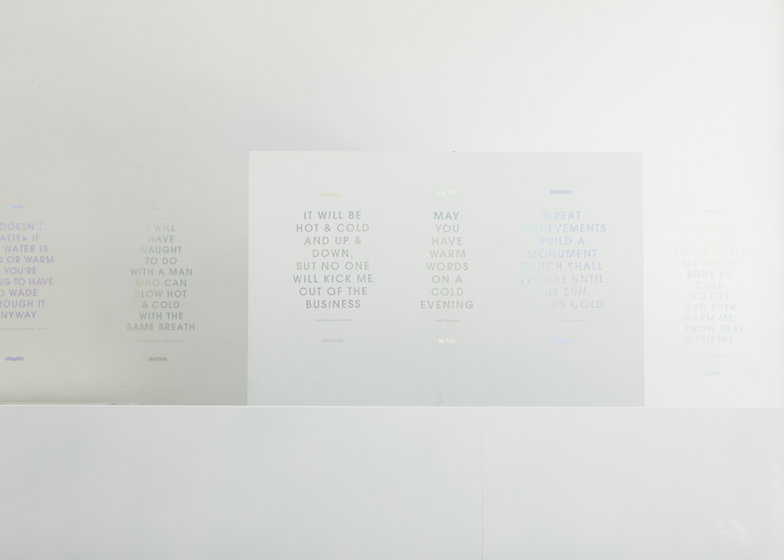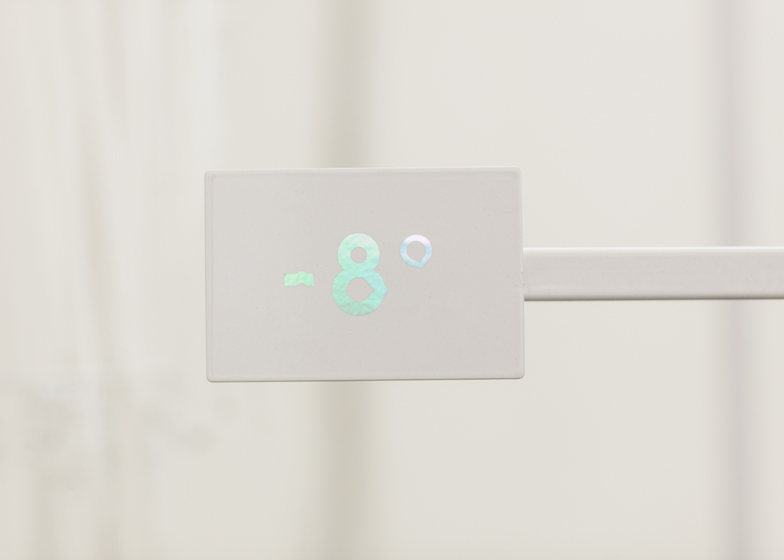Milan 2014: dripping water from ice-encased tropical plants and quietly rotating feather-patterned fans featured in this climate-themed exhibition by Italian research centre Fabrica (+ slideshow).
Industrial, graphic and interactive designers at Fabrica created a series of sensory installations that aimed "to give a visual and experiential form to temperature" for air conditioning brand Daikin, in Milan last week.
Thirty-six exhibits were installed within a laboratory-like setting entitled Hot & Cold.
Following research into the effects of temperature, the designers curated a series of kinetic, material and sound-based works led by the project's creative director Sam Baron.
"In this project we conceived design as a practice that must communicate through form and function, a design that sets out from an object, and reaches towards sound, graphics and interactivity," said Baron.
Works on display included Migration, which comprised five motorised exhibits with hand-illustrated feathers. These represented the migration patterns of birds, characterised by height, distance and flock sizes during flight, said the project team.
"We loved the idea of birds migrating from one climate to another, as an expression of cold to hot and vice versa," design team member Dean Brown told Dezeen.
The Solar exhibit used NASA's interpretations of what planets sound like. In the centre of the exhibition, the team hung a mechanical model of Venus and Neptune, the hottest and coldest planets, orbiting the sun.
A sculpture called Air was made from suspended borosilicate glass letters, a material which is typically used in laboratories and resists extremely high temperatures.
"We discovered that you can burn the glass on the inside," said Brown. "These oil lanterns are slowing charring the inside of the glass and by the end of the exhibition, the letters will become totally black."
A series of tropical plants entitled Flora were encased in ice, which gradually melted away and collected in a glass vessel to reveal the plant.
Smaller objects were displayed on white metal stands with perforated tops, while larger exhibits were protected by low metal barriers designed to evoke a museum environment. "We took these references like these fences and plinths and framing objects the way you might do in a natural history museum," said Brown.
The exhibition took place at the Garage Milano show during the city's design week, which concluded on Sunday.

